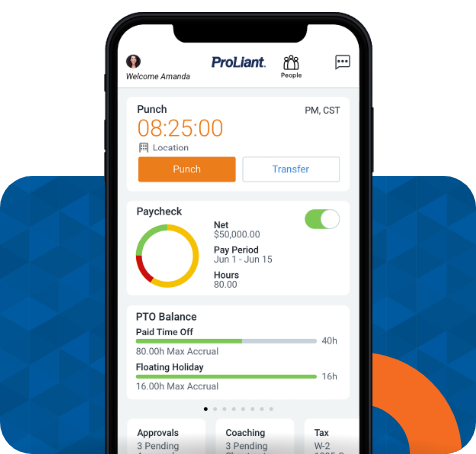There's no denying the job market looks drastically different than it did in 2019. But are more changes on the horizon? We sat down with HR expert, Marcy Fluevog, to get her take on the new job market, recent trends, and how employers can enhance their recruiting efforts with the right software. Two senior recruiters, Kaleigh Pedersen, and Erin Hogan, also joined us to offer their unique perspectives and give pointers on how candidates can get noticed by top employers in this job market.
The Desire for Remote or Hybrid Work
According to research conducted by Zippia, only 4% of Americans worked from home before 2019. After the pandemic, over 10% of full-time employees now work remotely, while another 28% work a hybrid model. Yet, companies everywhere are starting to make a concerted effort to bring employees back to the office. We were curious to learn if potential new hires share this same enthusiasm to return to their cubicles.
Are potential new employees asking to work remotely or ready to return to the office five days a week?
Marcy Fluevog (MF): A large majority of candidates are looking for remote or hybrid positions at minimum.
Erin Hogan (EH): Candidates absolutely want remote positions.
Why do you believe candidates want a remote or hybrid role?
MF: Candidates primarily want a remote or hybrid role because they allow for more flexibility and work/life balance. Without having to commute back and forth to work, employees are finding that they can start their workday earlier and get more done, all while feeling like they still have time for family at the end of the day.
EH: Candidates want the remote role primarily for flexibility. There's a famous TED Talk by Jason Fried about how work doesn't happen at work. Essentially, he argues that if you asked any number of employees where they go when they need to get something done, they would say either a place (porch, deck, kitchen, coffee shop, extra room), a commute (train or plane), or at a specific time like early in the morning. Rarely anyone answers with "the office." He concludes by stating that the office is where people trade their work day for work moments. I think people realized this during the pandemic and now want to continue down that path.
Unsurprisingly, candidates prefer a remote environment and specifically seek out those opportunities. However, it's important to note that not all jobs or careers are conducive to remote work or allow for work/life balance. In those instances, it's essential to understand what your ideal day looks like. Author Nigel Marsh recommends writing down your idea of a balanced day and then elongating it. Marsh states, "We have to be careful with the time frame upon which we choose to judge our balance. We need to be realistic. You can't do it all in one day...[but you also don't want to fall] into the trap of the 'I'll have a life when I retire, when my kids have left home...'" This practice will also help employees remain accountable and productive to their employer.
How to Engage a Remote or Hybrid Workforce
Connecting to your remote employees and coworkers is essential in today's new normal. According to Yahoo Life, 66% of people expressed a lack of strong connection with their coworkers. How can you build company culture and employee morale miles apart? Here's how our recruiters and HR experts responded.
What are companies doing to engage their remote or hybrid employees?
MF: Many companies with remote employees highlight how they keep everyone connected, whether through Zoom, Slack, or team calls. They also highlight game nights, happy hours, and contests. I've also noticed an uptick in the need for internal communications. Jennifer Sigler, director analyst in the Gartner Marketing & Communications practice, echoes this sentiment. "With workers experiencing the fallout from COVID-19 and then the Great Resignation back-to-back, the emphasis on employee communications has grown dramatically," she explains. "Getting that communication right is more critical than ever."
Kaleigh Pedersen (KP): I've noticed that companies have a lot of different message boards to help employees connect on topics unrelated to work. For example, things like "pet boards" are popular because employees can post things their furry friends do throughout the day. Companies can also add gaming elements to their workplace, encouraging employees to complete specific actions or tasks to help increase engagement and productivity. With an effective gamification plan, your company can significantly increase profitability, production, and employee retention.

Besides keeping remote or hybrid employees engaged, how else can companies stand out in this competitive market?
MF: I think having a good reputation helps companies stand out. Sites like Glassdoor can help candidates understand what it's like working at a particular organization. When a company interacts with reviews on Glassdoor, that perception skyrockets. According to Glassdoor, 80% of users state their perception of a company improves when they see review responses. Offering competitive salaries, benefits, and PTO also helps companies stand out, and you should never overlook the interview process as an area to set yourself apart. Respecting candidates and their time can make a lasting impression, too.
KP: There are so many things a company can consider doing to recruit the best of the best. Some ideas include monthly awards, announcements highlighting people, incentive trips for salespeople, a lucrative maternity/paternity leave package, stock or private equity, sign-on bonuses, etc.
EH: Occasionally, getting departments together at the corporate offices or a favorite local spot to spend time in person is always a nice touch. I think the catch here is not making it mandatory or too frequent. You don't want the get-togethers to lose their novelty or feel like an obligation. The goal is to maintain a work/life balance and not to tilt the scale too much in one direction.
Using Technology to Support Recruiting Efforts
Technology makes the world go round. It helps make lives easier, keep people connected, streamline processes, and move things forward.
How can employers use technology to support their recruiting efforts?
MF: Utilizing technology to make the hiring process as efficient as possible for candidates is essential. Companies used to have someone come into the office and knock out multiple interviews in a single day or week. Now, that's not as easy to do, and it can frustrate the candidate because it prolongs the hiring process. Technology can help companies define steps in the hiring process, send automated emails or text messages so candidates stay informed, and schedule interviews. I recommend looking for a tool that can:
- Monitor candidates as they move through the screening and eligibility process
- Post jobs automatically on your company website and leading job boards
- Let candidates select the interview time that works best for them
- Eliminate the number of back-and-forth emails
- Measure interview results consistently with talent scorecards
- Help vet new hires easily with a one-click background check feature
- Allow candidates to search for jobs and complete applications from any mobile device

Research, anecdotes, and expert perspectives illustrate that employees are most satisfied working remotely or in a hybrid environment. Yet, fostering connections and company culture can prove challenging. Technology can help appeal to top candidates, smooth the hiring process, and help new employees assimilate quicker.








No Comments Yet
Let us know what you think